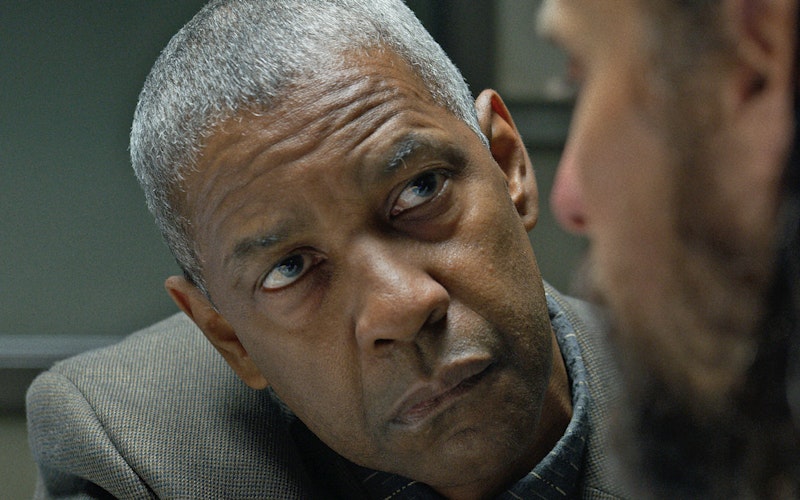
Movies
The Little Things and Looking for Evidence
Editor’s note: The following contains spoilers for The Little Things.
How true is subjective truth? Can it be trusted, or is it fully associated with our own personal assumptions? How far should we go in life to follow what we believe to be true before seeking out objective truth? And where should we go to find that?
The Little Things asks such questions within an entertaining yet formulaic story that’s reminiscent of 1990s buddy cop films. This isn't to say it's bad, as a movie starring Denzel Washington, Rami Malek, and Jared Leto has far too much talent to not be entertaining. However, if you watch it expecting to be blown away or surprised you may be disappointed. The beauty of this movie is truly in the minor details.
Joe Deacon (Washington) is a small-town police officer who joins Jim Baxter (Rami Malek), a detective with the Los Angeles County Sheriff’s Department, to solve a series of murders that closely resembles a case similar to one Deacon investigated years earlier. We learn early on that Deacon was greatly impacted by what he experienced in the still-unsolved case; in fact, his life crumbled shortly after the failed investigation. Baxter calls Deacon in with only a few days left before higher authorities come in and take over. And so Deacon and Baxter work together: one for redemption, the other for pride.
Deacon and Baxter are determined to find the serial killer, but they pursue the case with desperation and emotion, which impairs their judgment and instinct. Partway through the movie the detectives find their main suspect, Sparma (Leto), and bring him in. But there is a problem: all the evidence they find on him is circumstantial or inconclusive.
This is where the story shifts. Deacon and Baxter begin believing this man is the murderer because it makes sense to them, but the evidence doesn't back it. Their truth has become subjective. Their own hubris drives them forward and in the end brings devastating consequences.
How true is subjective truth?
I love this idea because it closely mirrors my battle with doubt and my Christian belief. I grew up believing many things about my faith, only some of which was in the Bible. Between misquotes, random opinions I came across online, and what little I remembered from scripture-reading plans, I had built up a wealth of knowledge on a foundation of sand. As I grew older these beliefs were continually challenged. The world changed, culture changed, I changed, and I struggled with a copy-and-paste Christianity built on what I heard others say and what I wanted to believe.
Deacon and Baxter show us that when you believe something to be true based on emotions, then no facts or circumstances countering your belief will adjust your direction. In their search for evidence they break protocol and compromise who they are as officers, even threatening Sparma multiple times and breaking into his apartment. As Sparma, Leto toys with Washington and Malek, creating unsettling moments that convince them and us he is the murderer. His stoic facial expressions contrast with Washington and Malek’s emotional responses, crescendoing to an intense ending.
Like the movie’s detectives, in my struggle to continue believing I ignored those around me who held solid ideas that contradicted my own notions. I continued thinking I had all the answers. This came to a head in 2018 when I finally had to look at myself and my faith and acknowledge I knew nothing. Much like Deacon at the beginning of the movie, I had lost faith in myself because of my own miscalculations. When you realize you can no longer trust what you thought was true, you begin doubting everything.
By 2019 I had enough. I was ready to walk away from Christianity. My years of faith were truly built on sand. All it took were a few strategic pieces to fall for it to all come crumbling down. Thankfully, unlike Deacon and Baxter, I decided to start over. I renounced all my broken knowledge and focused on the indisputable facts of my faith. What were the things I could not dispute which proved God's existence in my life? I chose to look at the evidence.
There was one thing I knew I could hold onto: God absolutely and radically changed my life at 15 when I needed him most. He brought a very lonely, broken kid from a broken home begging for help to a church which provided him the love, support, and help he desperately was crying out for. To me this moment represented indisputable proof that God moved in my life and literally saved me. This was my new foundation. In Romans 1:20 Paul tells us that “God’s invisible qualities—his eternal power and divine nature—have been clearly seen . . .” When I reflect on my life I can clearly see God moving in different areas when I or those I care about needed him most. I look to this as irrefutable proof of God’s existence.
To be honest I still do not have the answers to many of the questions that shook my faith. As with The Little Things, the end of my journey leaves just as many questions as the beginning. Yet as I've grown older and wiser I believe God made it this way. It's why we call it faith.
Topics: Movies